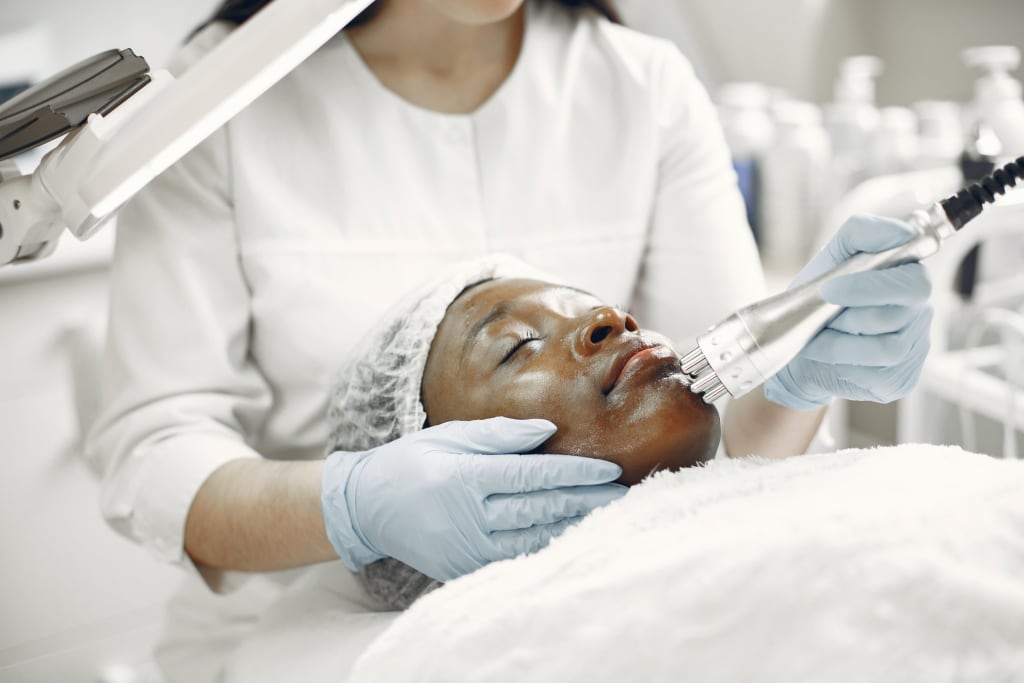Debunking Body Odor Myths: Insights from Dermatologists
Unraveling the Truths About Sweat, Odor, and Hygiene

In a recent discussion, dermatologists Dr. Michelle Henry and Dr. Devlin Bonacelli delved into the myths and facts surrounding body odor, shedding light on crucial aspects of sweat, its composition, and effective hygiene practices.
Understanding the Science Behind Sweat
Contrary to popular belief, not all sweat is created equal. Dr. Henry explains that there are two types of sweat glands in our bodies—eccrine glands, responsible for thermoregulation and found all over, and apocrine glands, primarily concentrated in areas like the underarms, chest, and groin. While the sweat from eccrine glands is virtually odorless, it's the bacteria in apocrine gland areas that contribute to the characteristic smell associated with body odor.
Dr. Bonacelli emphasizes the role of bacteria in these regions, highlighting the thousands of types of bacteria, fungus, and yeast present on the skin as part of the normal microbiome. Understanding this dynamic helps demystify the causes of body odor.
Dispelling the "Everyone's Armpits Stink" Myth
Contrary to the widespread belief that everyone's armpits emit an unpleasant odor, only two percent of the population possesses a specific genetic mutation (abcc11 gene) that renders them odorless. Dr. Henry and Dr. Bonacelli stress the importance of maintaining good hygiene practices and seeking medical advice if excessive odor persists.
Effective Treatments for Body Odor
Addressing smelly armpits involves various treatment options. From regular showering and antibacterial soaps to prescription antiperspirants and even Botox injections in extreme cases, the dermatologists discuss practical solutions to manage body odor effectively. Dr. Bonacelli also shares a unique tip: applying antiperspirant at night for optimal results.
Debunking Myths About Smelly Feet
The dermatologists clarify that smelly feet are not necessarily a sign of poor hygiene. Dr. Henry explains that the high concentration of sweat glands on the feet, combined with the enclosed environment in shoes, creates an ideal breeding ground for bacteria and yeast. Proper foot hygiene, including washing with antibacterial soap and wearing absorbent cotton socks, can significantly mitigate foot odor.
The Evolution of Body Odor Throughout Life
Dr. Henry dispels the notion that an individual's signature scent remains constant. Hormonal changes, aging, and shifts in microenvironments all contribute to alterations in body odor. The dermatologists provide insights into the science behind the distinct smells associated with different life stages.
Sweating as a Detox Method: A Common Misconception
Addressing the misconception that sweating is an effective means of detoxification, Dr. Bonacelli emphasizes that the body primarily detoxifies through the liver and kidneys. Sweating aids in temperature regulation rather than expelling toxins. While activities like sauna sessions offer mental and relaxation benefits, they do not serve as a primary detox method.
Clarifying the Safety of Antiperspirants with Aluminum
Responding to concerns about aluminum in antiperspirants causing cancer, Dr. Henry provides a science-based perspective. While aluminum is present in breast tissue near the underarms, current data does not establish a direct link between aluminum-containing antiperspirants and breast cancer. The dermatologists encourage individuals to educate themselves on alternatives while emphasizing the importance of monitoring emerging research.
Deodorant vs. Antiperspirant: Understanding the Difference
The dermatologists clarify the distinction between deodorants and antiperspirants. Deodorants mask odor, while antiperspirants, containing aluminum-based ingredients, reduce sweating by blocking pores. They also provide tips for choosing natural deodorants and stress the significance of consistency in product use.
Conclusion: Embracing the Normalcy of Body Odor
In conclusion, Dr. Henry and Dr. Bonacelli advocate for self-acceptance, emphasizing that occasional body odor is a natural part of being human. While debunking myths, they encourage individuals to be kind to themselves and others. If concerns arise, consulting with dermatologists or healthcare professionals can provide personalized solutions.
This insightful conversation not only dispels common myths but also empowers individuals to make informed choices in their hygiene routines, promoting a healthier and more accepting perspective on body odor.






Comments
There are no comments for this story
Be the first to respond and start the conversation.